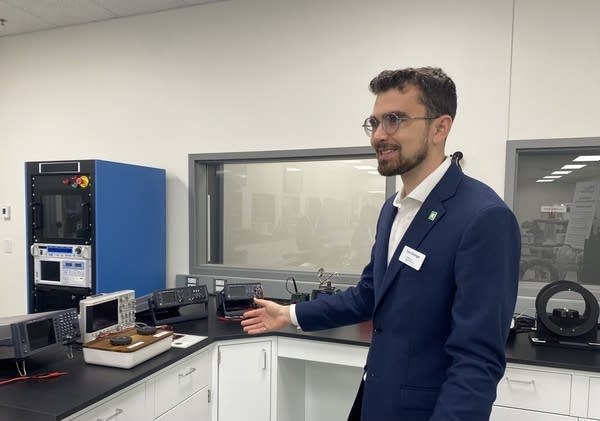Minnesota-based magnetics company scales up greener options

Tom Grainger, Niron Magnetics' senior director of business development and investor relations, points out the first pair of headphones created with Niron’s “Clean Earth Magnet” technology.
Anika Besst | MPR News
Go Deeper.
Create an account or log in to save stories.
Like this?
Thanks for liking this story! We have added it to a list of your favorite stories.


